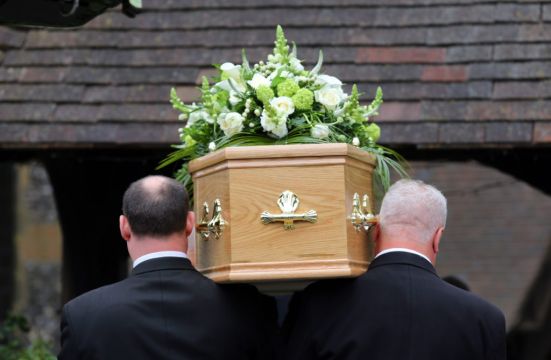There have been more than 6,200 Covid-19 related deaths in Ireland over the last two years, new figures show.
Based on mortality data reported to the Department of Health, more than 1,000 of those deaths occurred in the first four weeks of 2021, according to the Central Statistics Office (CSO).
The CSO published a series of figures showing the impact of coronavirus on Ireland from the date of the first confirmed case on February 29th, 2020.
The CSO said Covid has affected every aspect of life in Ireland and the ripple effect of the virus is still being felt and measured two years on.
A spokeswoman said the impact of the pandemic on Ireland’s society will be felt for years to come.
A snapshot of the impact of COVID-19 on Ireland based on statistics compiled by the Central Statistics Officehttps://t.co/JrDDODp1IU #CSOIreland #Ireland #COVIDIreland #Health #SocialImpact #Transport #BusinessStatistics #OverseasTravel #CPI #ConsumerPrices pic.twitter.com/OFjPGL1wS5
— Central Statistics Office Ireland (@CSOIreland) February 23, 2022
Recent figures published show that 90 per cent of deaths involved people aged 65 or older.
This age group also accounted for 50 per cent of all those admitted to hospital between March 2020 and December 2021.
Men accounted for 52 per cent of hospital admissions and 63 per cent of admissions to ICU since the start of the pandemic.
Meanwhile, figures show that employment increased by 229,100 to 2,506,000 people by the end of last year, exceeding 2.5 million for the first time since the series began in 1998.
“The impact of the virus on the economy has been significant,” the CSO spokeswoman said.
“While the seasonally adjusted standard measure of monthly unemployment was 5.3% in January 2022, the Covid-19 adjusted measure of unemployment could indicate a rate of 7.8% if all claimants of the Pandemic Unemployment Payment (PUP) were classified as unemployed.
“This alternative measure is up from a rate of 7.4% in December 2021 and down from 27.1% in January 2021.”
The most recent Live Register shows there were 410,551 fewer people in receipt of the PUP at the end of January 2022 than at the same time the previous year.
Household savings from January 2020 until the end of September 2021 was €54 billion, compared with €20.8 billion for the equivalent pre-pandemic period.
Restrictions introduced by the Government to control the spread of the pandemic also affected crime rates and the types of crimes committed.
The Recorded Crime publication in mid-2021 found that more than 13,500 frauds were recorded in the 12-month period compared with just under 8,000 in the previous year – a rise of 72 per cent, largely driven by unauthorised transactions and attempts to obtain personal or banking information online or by phone.
The number of crimes recorded in most other categories fell compared with the previous year – burglary dropped by 36 per cent, theft fell by 20 per cent, and robberies were down by 18 per cent.

There were 15 fewer incidents of murder or manslaughter in the 12 months to September 2021 than in the previous year, but there was a 10 per cent rise in the number of crimes classified as sexual offences.
With more people working at home, the CSO Pulse Survey on Remote Working found that 88 per cent of people who can work remotely would like to do so when all restrictions are removed.
Almost three-quarters of those who work remotely feel they now have more time to do things they never got the chance to do before the pandemic.
Around 30 per cent of those in employment whose current job cannot be done remotely would be definitely or probably attracted to a new job which could.
Asked about purchasing products online, six in 10 people said they mainly look for retailers that are either based locally to them, or elsewhere in Ireland, regardless of price.







